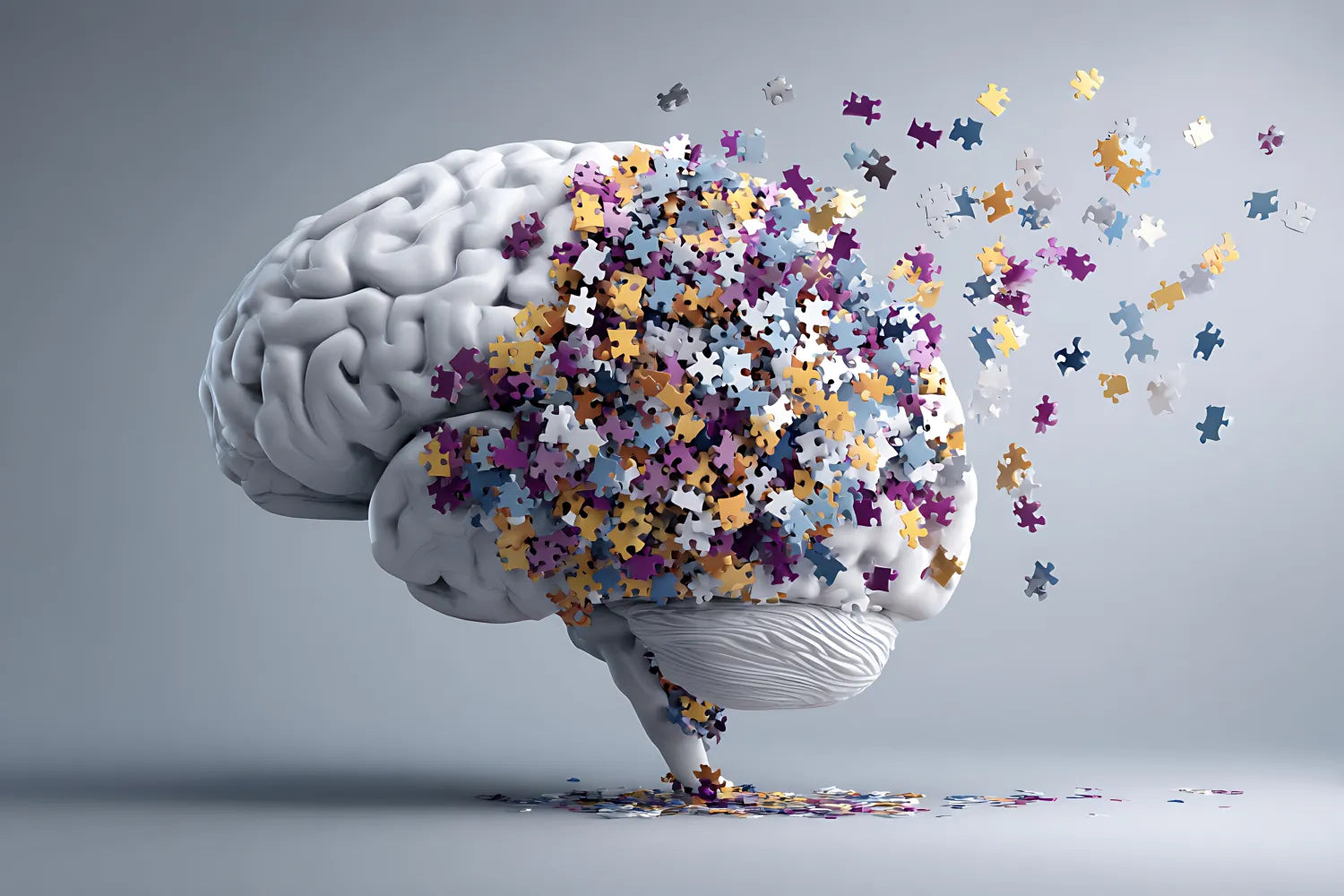
Dr. Eric Venn-Watson’s Highlights
-
The endocannabinoid system is a web of receptors located all over the body that control various bodily functions and processes.
During pregnancy, the endocannabinoid system plays a vital role in the health and balance of the uterus.
Taking fatty15 can help your body make a newly discovered, fully-acting endocannabinoid, which binds to receptors in the endocannabinoid system to support a healthy pregnancy.
When you become pregnant, your body not only begins to support the growth of new life but also changes to ensure that new life thrives inside the womb. This is complex, especially considering the body is designed to recognize foreign bodies as threats.
A complex messaging system called the endocannabinoid system acts as a modulator during pregnancy, ensuring the stability and vitality of the mother’s body and the baby’s.
We’ll talk about how it works and how you can help support your body’s endocannabinoid system and thus support your pregnancy.
What Is the Endocannabinoid System?
Discovered in the nineties, the endocannabinoid system (ECS) is a series of receptors located throughout the body that control numerous bodily processes and functions. The ECS is a switchboard, receiving communications from all over the body and routing the messages where they need to go to effectuate needed changes.
The ECS is directly involved with processes and functions like:
- Emotions and mood
- Sleep
- Appetite
- Pain regulation
- Immunity
While engaging in these processes, the ECS also becomes a major player in pregnancy, helping ensure the state of the uterus and helping establish balance and regulation so that it becomes completely viable for supporting the baby.
ECS Receptors
Two different types of receptors have been identified in the ECS. They are CB1 receptors and CB2 receptors.
- CB1 Receptors. These receptors are located in the brain and in the cells of the central nervous system. They control mood, sleep, body temperature regulation, and fight or flight response.
- CB2 Receptors. These receptors are located primarily in your immune system and in the gut. These control immunity, hunger, and pain.
Modulating these receptors helps the endocannabinoid system function properly, which translates into a better functioning, healthier body, and healthy pregnancy.
Pregnancy: The Science of New Life
Pregnancy is a two-part process. The first part entails the support and growth of a new life. The new life requires a safe environment, a constant supply of nutrients, and oxygen. The second part involves the safety and health of the mother, whose body is simultaneously working to keep itself regulated and balanced while supporting the new life within it.
This delicate balance wherein both the mother’s body and the baby’s body are both functioning properly and regulated is called homeostasis. The ECS helps keep your body and your baby’s body in this balanced state.
The Role of the ECS in Pregnancy
We are only just understanding the role that the ECS plays in our daily functions, and as such, understanding how it affects pregnancy is also relatively new information. We know that research has discovered that the ECS acts as a sort of pregnancy regulator to help establish a baseline of wellness during pregnancy for both the mother and baby.
Here’s how it works.
Immunity
The ECS is directly involved with the immune system, specifically cell migration. Cell migration is important in the early months of pregnancy as immune cells line the walls of the uterus, causing inflammation that helps the fertilized egg implant and supports the burgeoning growth of your new baby. This is called endometrial decidualization.
The Uterus
The ECS helps protect and ensure the vitality of the environment in which your baby grows, which means it responds to changes in the uterus (stimulus) and sends cells called effectors to respond to the changes. These are called feedback loops and help keep the womb in a perfectly balanced state.
The Placenta
The human body grows an entirely new organ when it becomes pregnant. This organ, called the placenta, is responsible for feeding the baby nutrients and oxygen throughout the pregnancy. The ECS helps ensure proper placental placement and health, which is essential to a successful pregnancy.
Fertility
The ECS also plays a role in the development of sex hormones and fertility and is suspected of helping positively impact reproductive hormones that control both the release of eggs in the female and the release of sperm in the male.
By interacting with the endocannabinoid system, it may be possible for both men and women to produce healthier, more viable eggs and sperm to support better pregnancy outcomes.
What Are Cannabinoids?
The receptors of the ECS respond to compounds called cannabinoids. There are three different types.
- Plant-based. Cannabinoids found in the cannabis-sativa plant have been well-established. They interact with the ECS, but because some of them have undesirable side effects (like psychoactive responses), it can make it difficult for them to be used therapeutically.
Sometimes, other cannabinoids are used that help mitigate the psychoactive effects, making it more tolerable for these cannabinoids to be used.
- Synthetic cannabinoids. These are cannabinoids that are created in a lab. They are sometimes intended for recreational use, but several are approved for treating illnesses like nausea in patients undergoing chemotherapy.
- Endocannabinoids. The body makes its own cannabinoids that interact and bind to the receptors in the ECS. These are called endocannabinoids. Anandamide, the first discovered endocannabinoid, interacts only with CB1 receptors. 2-arachidonoylglycerol, or 2-AG, is able to bind to both CB1 and CB2 receptors, which means it is fully acting.
A fully acting endocannabinoid can help support more regulation in the ECS. Until now, we’ve only been aware of the body’s ability to create one. Now, there’s evidence of another.
The New Kid on the Block
New research has revealed that the body can make a second fully-acting endocannabinoid called pentadecanoylcarnitine (PDC). This discovery can help us better engage the full spectrum of functions of the endocannabinoid system and, as a result, support healthier versions of ourselves and our pregnancies.
How It Was Discovered
To understand how PDC was discovered, we must first understand how the body synthesizes its own endocannabinoids. It all starts with fatty acids. The body uses fatty acids and enzymes to create endocannabinoids, so if we don’t have enough of the fatty acids our bodies need, we can’t make enough endocannabinoids.
PDC requires a particular fatty acid called C15:0, which was discovered by a veterinary epidemiologist helping dolphins live longer, healthier lives. Dr. Stephanie Venn-Watson found that higher circulating levels of a particular fatty acid were responsible for many health benefits in the healthiest dolphins.
She went further, looking into the health benefits of this molecule in human populations and, three years later, published her findings in Nature's Scientific Reports in 2020. Once she discovered that C15:0 could also help the human population, she began researching its benefits and discovered its link to creating PDC.
How We Can Get C15:0
Although we have been told that all saturated fats are bad for us, science now supports that that is not the case. Science supports that higher levels of odd-chain saturated fatty acids, like C15:0, are associated with better heart health, improved immunity, and a healthier, happier you.
C15:0 is primarily found in trace levels in whole-fat dairy products, as well as some types of fish and plants. However, simply increasing your intake of whole-fat dairy products comes with extra calories, sugars, and high levels of the "bad" even-chain saturated fats.
A solution? Fatty15.
Elevate your cells. Elevate your self.
Buy NowFatty15: Supporting Your ECS To Support Your Pregnancy
Fatty15 is a breakthrough supplement borne from scientific discovery, containing one pure, vegan-friendly, sustainably-produced, award-winning ingredient FA15™, which has been shown to be safe during pregnancy and while breastfeeding. Just one vegan-friendly capsule per day is enough to reestablish your circulating levels of C15:0 and help you lead a healthier life.*
Fatty15 not only supports your body’s ability to create PDC, but it also helps keep your cells healthy by:*
- Strengthening cell membranes
- Improving mitochondrial function, so your cells can provide your body with the energy it needs.
In addition, higher levels of C15:0 have consistently been associated with healthy cholesterol and triglyceride levels as well as improved heart health.*
Supporting your body and baby while you are pregnant is important, and learning how the endocannabinoid system works to regulate your pregnancy can help you understand how important it is to make sure your body is making its own endocannabinoids.
With fatty15, you can make sure your body has ample resources to make an important fully-acting endocannabinoid that helps support you and your little one during some of the most impactful nine months of your lives.*
Sources:
How to Avoid Sickness During Pregnancy—5 Life-Saving Tips | FHCSD
Endocannabinoid System in Pregnancy Maintenance and Labor: A Mini-Review - PMC
Updates in Reproduction Coming from the Endocannabinoid System - PMC

Eric Venn-Watson M.D.
CEO, Co-Founder
Senior Scientist, Co-Founder
Eric is a physician, U.S. Navy veteran, and Co-founder and COO of Seraphina Therapeutics. Eric served over 25 years as a Navy and Marine Corps physician, working with the special forces community to improve their health and fitness. Seraphina Therapeutics is a health and wellness company dedicated to advancing global health through the discovery of essential fatty acids and micronutrient therapeutics.
You May Also Like...
When Does Cognitive Decline Start?
Almost everyone will experience some cognitive decline in their lifetime. Learn which decade is most closely associated with thinking trouble.
List of Cognitive Changes in the Elderly as They Age
Are you wondering where your keys are? Not being able to find them could be due to cognitive changes in your brain as you age.


